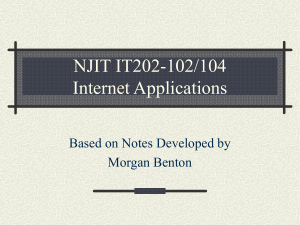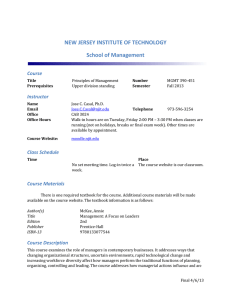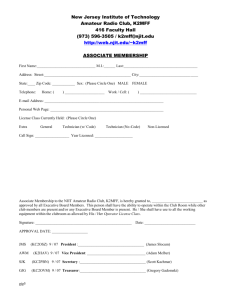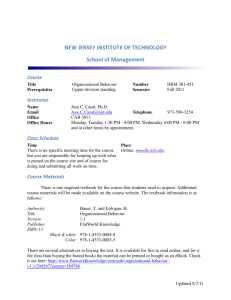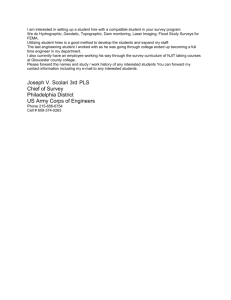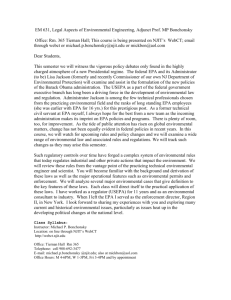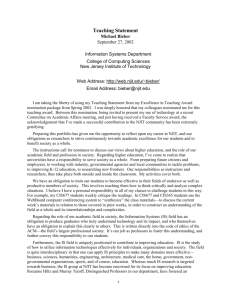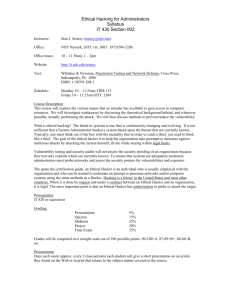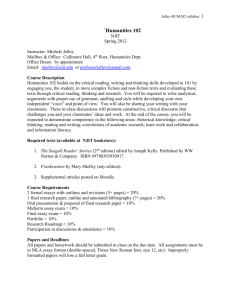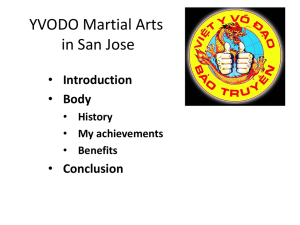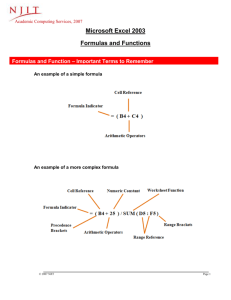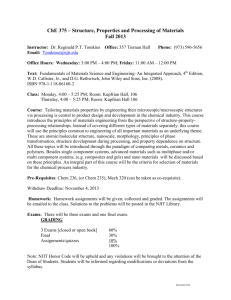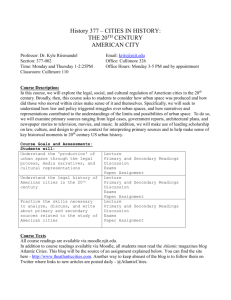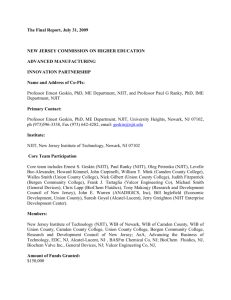HRM 601 W 01 Organizational Behavior
advertisement
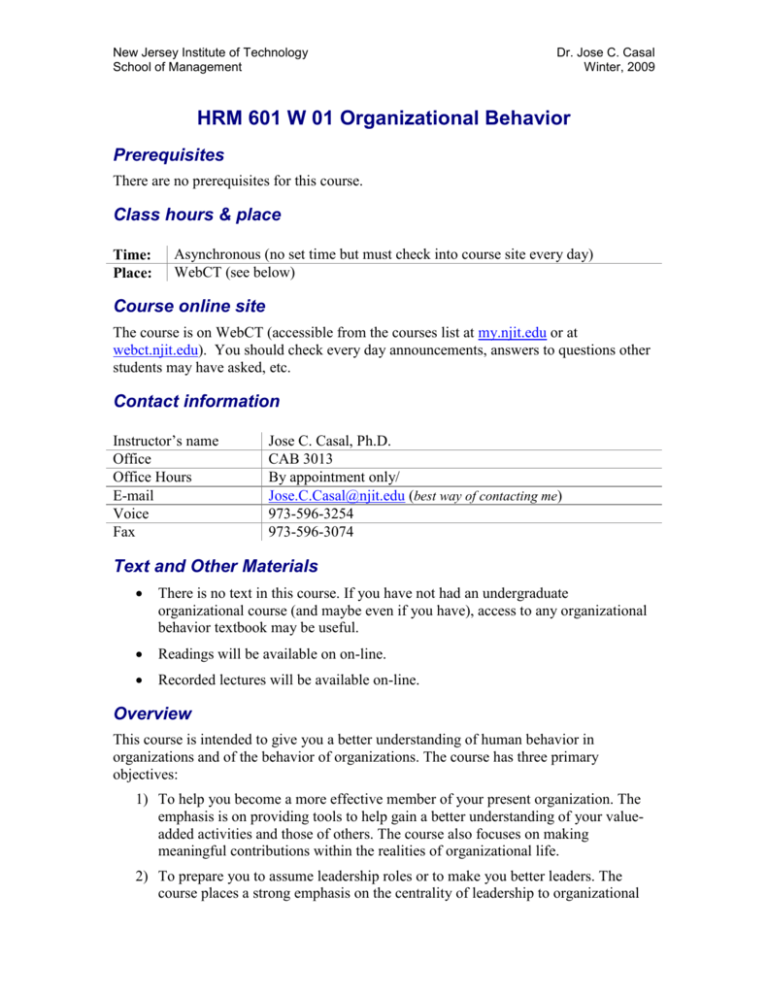
New Jersey Institute of Technology School of Management Dr. Jose C. Casal Winter, 2009 HRM 601 W 01 Organizational Behavior Prerequisites There are no prerequisites for this course. Class hours & place Time: Place: Asynchronous (no set time but must check into course site every day) WebCT (see below) Course online site The course is on WebCT (accessible from the courses list at my.njit.edu or at webct.njit.edu). You should check every day announcements, answers to questions other students may have asked, etc. Contact information Instructor’s name Office Office Hours E-mail Voice Fax Jose C. Casal, Ph.D. CAB 3013 By appointment only/ Jose.C.Casal@njit.edu (best way of contacting me) 973-596-3254 973-596-3074 Text and Other Materials There is no text in this course. If you have not had an undergraduate organizational course (and maybe even if you have), access to any organizational behavior textbook may be useful. Readings will be available on on-line. Recorded lectures will be available on-line. Overview This course is intended to give you a better understanding of human behavior in organizations and of the behavior of organizations. The course has three primary objectives: 1) To help you become a more effective member of your present organization. The emphasis is on providing tools to help gain a better understanding of your valueadded activities and those of others. The course also focuses on making meaningful contributions within the realities of organizational life. 2) To prepare you to assume leadership roles or to make you better leaders. The course places a strong emphasis on the centrality of leadership to organizational New Jersey Institute of Technology School of Management Dr. Jose C. Casal Winter, 2009 success. It is designed to help you understand a leader's responsibilities to his or her subordinates and to help you develop an effective leadership style. 3) To provide you with the tools and information necessary to make informed career choices that lead to successful career paths. Course Requirements There are no exams. Two out of three short (3 to 5 pages) papers discussing an organizational behavior issues (35 % each). An example follows: “ Based on the material that we’ve covered so far in the course, discuss how each of the following (there is some overlap) would impact the structure, power/politics/coalitions, and culture of an organization. Explain your answers. a. Size of the organization b. Environment (rapidly changing vs. stable, heterogenous vs. homogenous [i.e. the environment composed of many different things vs. the environment is not composed of many different things]) c. Multinational vs. not multinational organization d. Technology.” Posting to three bulletin board discussions (30 %). Schedule The course site has a calendar that will have specific due dates and that will direct you to the specific lectures that you need to watch. Usually there is only one lecture lasting onehalf to three-quarter hour assigned but sometimes there are two such lectures. Day Topic Assignments 1 2 3 4 5 6 Organizational Structure Watch Lecture(s) Power and Politics in Organizations Watch Lecture(s) 7 8 9 10 11 12 Decision Making & Leadership Watch Lecture(s) Motivation Paper 2 Lectures Paper 3 Organizational Change Watch Lecture(s) Discussion 1 Organizational Culture Watch Lecture(s) Discussion 2 Paper 1 Discussion New Jersey Institute of Technology School of Management Dr. Jose C. Casal Winter, 2009 Make-up Work Make-up work will only be given if there are documented, major reasons outside of your control (e.g. illness, family tragedy, military service) for not being able to do the work on time. Demands on your time that you should reasonably expect such as those arising from having a job or having a family are not considered reasons for not doing coursework on time. Curving The course grade will be curved at the end of the semester by adding to each grade the number of points lost by the student with the second highest grade. For example, if the student with the second highest grade got an 88 %, then 12 points would be added to every course grade. Extra-Credit and Do-Overs No extra-credit work and no “do-overs” (submitting work, not liking the grade and wanting to redo the work). Incompletes Incompletes will be given only if you cannot finish the course due to major reasons outside of your control (e.g. illness, family tragedy, military service). The school is now requiring documentation of the reasons for the incomplete and a description of the work that is needed to remove it to be put into your file. Grading Scale The conversion of percentage points to letter grade is as follows: A B+ B C+ C F 89.5 up to 100 86.5 up to 89.5 79.5 up to 86.5 76.5 up to 79.5 69.5 up to 76.5 0 up to 69.5 Honor Code You are expected to follow NJIT’s honor code, which can be found at http://www.njit.edu/doss/policies/honorcode/.
